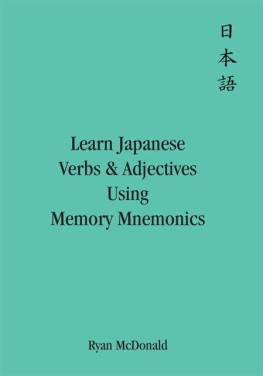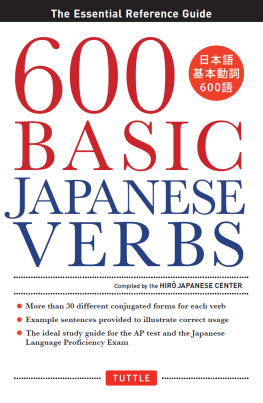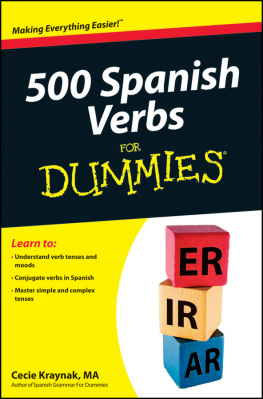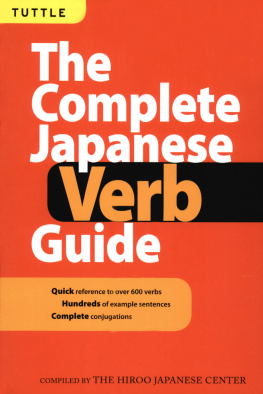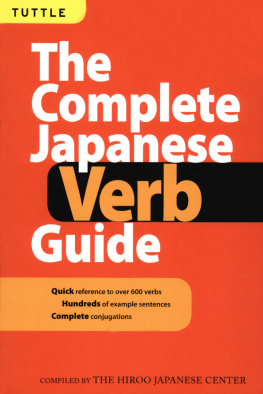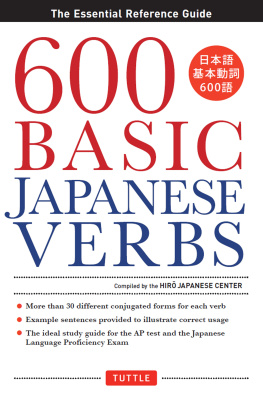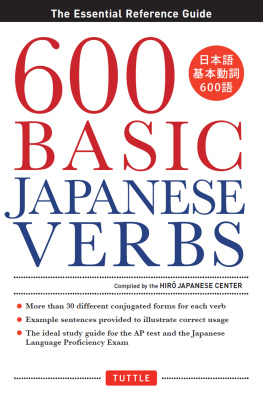1
Entering Japan THE SITUATION To legally enter Japan you must deal with the necessary formalities, such as immigration papers, customs declaration, and quarantine inspection. Most officials normally speak some English, but don't miss this opportunity to practice. Don't miss out on any chances to speak Japaneseeven before you chakuriku-suru (land) at the airport! Of course, if you mitsunykoku-suru (enter illegally) into Japan, compound- suru verbs are still applicable should you have to mikk-suru (stow away), or ts-suru (escape, run away). Beware, however, of the tragic fate that awaits illegal entrants. Immigration officials or police may taiho-suru (arrest) such individuals, and finally tsuih-suru (expel, deport), or even kankin-suru (imprison) them. But let's go back to the average situation of entering Japan.
The immigration officers' main job is to kensa-suru (to check, to examine). The officer examines your passport and visa. If they are not in order, he may kyohi-suru (refuse) your entry. If they are in order, he will shnin-suru (admit) you and natsuin-suru (stamp) your passport. Following this procedure, you must tskan-suru (clear) your personal effects. If you try to mitsuyu-suru (smuggle) narcotics or guns, police dogs will hakken-suru (discover) them without fail.
If you have two kilograms of gold bars, for example, you must shinkoku-suru (declare) them according to import laws, and the customs officer will kazei-suru (impose a tax) on them accordingly. If you unfortunately suffer from cholera or yellow fever, the quarantine officer will shdoku-suru (sterilize) all your belongings and may kakuri-suru (isolate) you. Also, if you hatsunetsu-suru (are feverish) or geri-suru (have diarrhea), then the doctor in charge will shinsatsu-suru (examine) you carefully. If there are no problems, customs will kyoka-suru (permit) you to enter Japan legally. But don't jump into a taxi or limousine bus just yet. First, rygae-suru (change money) at the bank inside the airport.
As a Japanese proverb says, Isogaba maware (Make haste slowly)! DIALOGUE TOURIST: Sumimasen ga, nimotsu wa doko de kensa-suru no desu ka? Excuse me, but where do you check our baggage? CUSTOMS OFFICIAL: Koko desu. Nanika shinkoku-suru mono wa arimasu ka? Right here. Is there anything to declare? TOURIST: Rorekkusu no kin dokei o motte imasu ga. I have a gold Rolex watch. CUSTOMS OFFICIAL: Kore ni wa kazei-saremasu yo. Ano madoguchi de nzei-shite kudasai.
This article is taxed. Please pay the tax at the window over there. Finishing the customs clearance, the tourist moves to the immigration counter. IMMIGRATION OFFICIAL: Pasupto o teiji-shite kudasai. Please show your passport. Yes, sure. Yes, sure.
IMMIGRATION OFFICIAL: Donna mokuteki de rainichi-sare-mashita ka? What is your purpose for visiting Japan? TOURIST: Kank-suru/Shigoto-suru tame ni rainichi-shimashita. I came to sightsee/to work. IMMIGRATION OFFICIAL: Nan nichi kan/Nan kagetsu kan taizai-shimasu ka? How many days/How many months are you staying? TOURIST: Itsuka kan/kykagestu kan no taizai o yotei-shite imasu. I plan a five-day stay/a nine-month stay. IMMIGRATION OFFICIAL: Nihon de shigoto-suru toki wa, kyoka ga hitsuy desu. Rd kyokasho o shutoku-shite imasu ka? In order to work in Japan, you need a permit.
Have you obtained a work permit? TOURIST: Hai, achira no Nihon taishikan de hakk-shite moraimashita. Yes, it was issued by the Japanese Embassy over there. IMMIGRATION OFFICIAL: Chotto sore o haiken-dekimasu ka? Can I see it for a moment? TOURIST: Hai, kore desu. Yes, here it is. IMMIGRATION OFFICIAL: Donna shigoto ni jji-shite imasu ka? What kind of business are you engaged in? TOURIST: Konpyt o yuny-shite, Nihon de hanbai-shimasu. Kono biza de nykoku-dekimasu ka? I import computers and sell them in Japan.
Can I enter your country with this visa? IMMIGRATION OFFICIAL: Mondai wa arimasen ga, moyori no shiyakusho de sugu gaikokujin troku o shite kudasai. Tsugi no kata dzo. No problem, but please complete your alien registration soon at the nearest city office. Next person, please. STRUCTURES AND SYNONYMS teiji-suru teiji (indication, show) + suru to show, to indicate, to exhibit Compare with miseru to show Toranku no nakami o misete kudasai. haiken-suru haiken (look, inspection) + suru to look, to inspect Compare with miru to see, look; shiraberu to inspect, to check Chotto pasupto o mitai no desu ga. haiken-suru haiken (look, inspection) + suru to look, to inspect Compare with miru to see, look; shiraberu to inspect, to check Chotto pasupto o mitai no desu ga.
I'd like to see your passport for a minute. rainichi-suru rainichi (come to Japan) + suru to come to Japan *Nichi is the abbreviation for Japan. Compare with Nihon ni kuru to come to Japan; hnichi-suru to visit Japan Kare wa kyonen san kai hnichi-shimashita. Last year he visited Japan three times. kank-suru kank (sightseeing) + suru to see the sights Compare with ryok-suru to travel, to tour, to make a journey Amerika o san shkan ryok-shimasu. shigoto-suru shigoto (work, job, task) + suru to work, to do one's job, to do business Compare with hataraku to work Chichi wa maiban j-ji made hatarakimasu. shigoto-suru shigoto (work, job, task) + suru to work, to do one's job, to do business Compare with hataraku to work Chichi wa maiban j-ji made hatarakimasu.
Dad works until ten every night. taizai-suru taizai (stay, sojourn) + suru to stay, to sojourn, to remain Compare with todomaru to stay, to remain, to abide, to stand still Pari ni itsuka kan todomaranakereba narimasen deshita. I had to stay in Paris for five days. yotei-suru yotei (schedule, plan, program) + suru to be scheduled, to plan, to intend Compare with tsumoridearu to intend, to plan Kare wa daigaku ni yuku tsumori datta. He intended to go to college. shutoku-suru shutoku (acquisition) + suru to acquire, to gain, to obtain Compare with eru to get; morau to receive, to get Biza o morau ni wa, ryjikan ni shutt-shinakereba narimasen.
In order to get a visa, you must show yourself to the consulate. jji-suru jji (occupation, engagement) + suru to be occupied in, to be engaged in Compare with tsuku to engage in, to set to work Kare wa kimatta shigoto ni tsuita koto ga arimasen. He has never been engaged in any fixed job. yuny-suru yuny (import) + suru to import hanbai-suru hanbai (sales) + suru to sell Compare with uru to sell Kono srusuman wa kongetsu wa kuruma o nij dai urimashita. This salesman sold twenty cars this month. hakk-suru hakk (issuance, publication) + suru to issue, to publish Compare with hakky-sur to issue *Hakky-suru is specific and suitable for official documents like passports and visas, while hakk-suru is widely applicable to various kinds of documents, including but not limited to official ones.
Ryjikan wa kare ni eij biza o hakky-shita. The consulate issued him a permanent visa. nykoku-suru nykoku (into a country) + suru to enter a country Compare with hairu to enter Furansu kara Doitsu ni hairimashita. I entered Germany from France. kensa-suru kensa (inspection, examination, test) + suru to inspect, to test, to examine Compare with shiraberu to inspect, to check Keikan wa unten menkyosh o snirabeta. shinkoku-suru shinkoku (declaration) + suru to declare Compare with mshi deru to declare Kare wa kin no tokei o mshi deta. shinkoku-suru shinkoku (declaration) + suru to declare Compare with mshi deru to declare Kare wa kin no tokei o mshi deta.
He declared a gold watch. kazei-suru kazei (taxation) + suru to impose a tax, to tax Compare with kakeru to impose Tkyoku ga kin no tokei ni hyaku doru zeikin o kakemashita. The authorities imposed a hundred-dollar tax on my gold watch. nzei-suru nzei (payment of tax) + suru to pay taxes Compare with shiharau to pay Kare wa hyaku doru no zeikin o shiharatta. He paid a hundred dollars in tax. FOR FURTHER STUDY tok-suru tok (travel by sea, sail)+ suru to travel by sea, to make a voyage, to sail for Kanojo no sofu wa goj nen mae ni snigoto de Amerika ni tok-shimashita.


